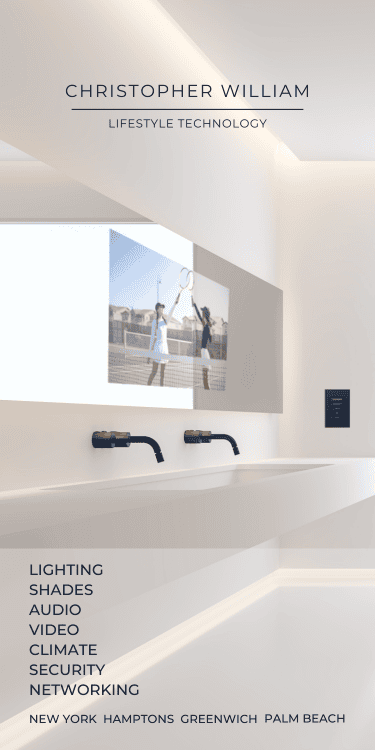David Dubin, a Senior Partner at the law firm of Twomey, Latham, Shea, Kelley, Dubin & Quartararo, LLP, has witnessed firsthand the rewards of arriving home in Water Mill to a greener place to live. Working with architects Ric Stott and Craig Lee, they designed a home that substantially reduced its reliance upon fossil fuels, significantly cut utility costs and minimized its environmental footprint. Telemark Builders of Bridgehampton, along with the Hamptons Green Alliance, a group of environmentally conscious subcontractors, performed the hard work which resulted in a home that was awarded a LEED Platinum Certification by the United States Green Building Council that combined net zero energy with carbon neutrality. Here, David identifies some of the financial incentives that are often overlooked in innovative green homebuilding.
Q: Are there any residential energy tax credits available from the IRS and NYS?
A: On the federal level, the Bipartisan Budget Act of 2018 reinstated the tax credit for solar electric and water heating, small wind, geothermal heat pumps, and fuel cells, with a gradual step down in the credit value. A taxpayer may claim a credit of 30% of qualified expenditures, which include labor costs for site preparation, assembly, installation, piping and wiring. The home does not have to be the taxpayer’s principal residence, except for fuel cells.
New York State offers a solar energy system equipment credit for purchased or leased equipment used for heating, cooling, hot water or electricity for residential use. The system must be installed at your principal residence in New York State, the credit is equal to 25% of your qualified solar equipment expenditures, and it is limited to $5,000.
Q: Does PSEG Long Island offer any rebates for energy efficient equipment and appliances in your home?
A: While PSEGLI discontinued its rebates for solar electric, it does offer a variety of incentives and credits to encourage residential customers to upgrade to more energy efficient equipment and appliances in their homes. Rebates are available for purchase and installation of various equipment and appliances, including geothermal heat pumps, refrigerators, washers, dryers, pool pumps, lighting, and central AC. A home energy assessment is available through their Home Performance with ENERGY STAR program at no additional cost.
Q: Does New York State offer any tax exemptions for renewable energy systems?
A: Real Property Tax Law Section 487 exempts from taxation real property which includes a solar or wind energy system that was constructed before July 1, 1988, or after January 1, 1991 and before January 1, 2025. The exemption is equal to the increase in assessed value of the property attributable to the inclusion of the energy system and lasts for 15 years.
Real Property Tax Law Section 470 provides local governments and public school districts with the option of offering property tax exemptions for homes that meet certification standards for green buildings under the LEED program or a substantially similar program. The exemption benefit is calculated as the increase in assessed value attributable to the completion of the LEED certified project, decreasing by 20% in each succeeding year after the initial term, as follows: For LEED Silver, the benefit is for 7 years at 100% for the first 3 years; for LEED Gold, for 8 years at 100% for the first 4 years; and for LEED Platinum, for 10 years at 100% for the first 6 years.
Q: Of the green technology and equipment in your home, can you identify some that have contributed to cost savings?
A: LED lighting uses approximately 75% less electricity, and the LED light lasts 25 times as long as incandescent bulbs. (Electricity savings of between 18 – 20% can be achieved in homes by this change alone.) Spray foam insulation has approximately twice the insulation value as fiberglass. Dual flush toilets and a rainwater harvesting system for irrigation preserve our sole source aquifer. Thin film and conventional solar panels contributed to a reduction of electric bills of over 60%. Geothermal system for heating and cooling contributed to a reduction in use of fossil fuels of over 90%. Gas powered dryer is very efficient (with 3 kids, we do a lot of laundry.)
David Dubin’s practice at Twomey, Latham, Shea, Kelley, Dubin & Quartararo, LLP includes real estate transactions, real estate and commercial litigation, land use and zoning, and property tax grievances. His firm has 30 attorneys with offices in Southampton, East Hampton, Riverhead, Southold and Hauppauge.
www.suffolklaw.com
[email protected]










!['The Maples' is a prestigious generational compound of two extraordinary estates: 18 Maple and 22 Maple. This rare offering, designed by luxury architect Lissoni partners New York and developed by visionaries Alessandro Zampedri-CFF Real Estate and JK Living, redefines opulence with the highest quality of craftsmanship and captivating views of the Atlantic Ocean. Represented by @nycsilversurfer and @challahbackgirl of @douglaselliman. [link in bio]](https://hamptonsrealestateshowcase.com/wp-content/uploads/sb-instagram-feed-images/438891010_1083749139481747_7890082604579275354_nfull.jpg)
![Featuring 360-degree water views on Mecox Bay, the Atlantic Ocean and Channel Pond, 1025 Flying Point offers the ultimate beach cottage that is flooded with natural light. With panoramic views, proximity to the ocean, and a private walkway to Mecox bay for kayaking or paddle boarding, this truly is a special retreat. Represented by @ritcheyhowe.realestate and @hollyhodderhamptons of @sothebysrealty. [link in bio]](https://hamptonsrealestateshowcase.com/wp-content/uploads/sb-instagram-feed-images/438994305_737511778456166_4602476013493875279_nfull.jpg)
![Attention advertisers! 📣 Secure your spot in the highly anticipated Memorial Day edition #HRES. Reach thousands of potential clients and showcase your brand in one of the most sought-after publications in the Hamptons, NYC, Palm Beach, and beyond. Contact us now to reserve your ad space! [link in bio]](https://hamptonsrealestateshowcase.com/wp-content/uploads/sb-instagram-feed-images/438549843_275102939023235_6718257301437562124_nfull.jpg)
![You eat with your eyes, and on the East End, it’s important that what you eat looks just as good as how it tastes. At @rosies.amagansett, the restaurant itself is plenty photo-worthy with blue ceramic tiling and yellow and white striped fabric wallpaper. But for a dish that will light up your photos, head directly to the salmon tartare! [link in bio]](https://hamptonsrealestateshowcase.com/wp-content/uploads/sb-instagram-feed-images/437094269_7296727147115953_1594410326824303644_nfull.jpg)

![We were honored to be the media sponsor for @blackmountaincapital's open house event with @jameskpeyton and @jfrangeskos at 11 Dering Lane in East Hampton! Other sponsors included @landrover, Feline Vodka, @rustikcakestudio, @la_parmigiana, @lahaciendamexicangrill11968, @homesteadwindows, Stone Castle, @talobuilders, and @thecorcorangroup.
A big thank you Carrie Brudner of Black Mountain Capital for putting together this fabulous event! [link in bio]](https://hamptonsrealestateshowcase.com/wp-content/uploads/sb-instagram-feed-images/437081213_762912965932136_6847332836522786568_nfull.jpg)

![Blooms Galore at the Long Island Tulip Festival! 🌷✨ Mark your calendars for April 15th as the vibrant tulips at @waterdrinkerlongisland burst into full bloom! Enjoy a day filled with colorful splendor, food trucks, live music, and more. [link in bio]](https://hamptonsrealestateshowcase.com/wp-content/uploads/sb-instagram-feed-images/437083429_974242677583725_6855805712693638343_nfull.jpg)
